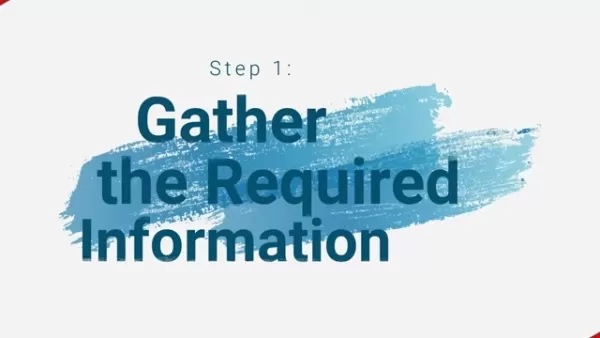108 Small Nations Unite to Share AI Insights Globally

New AI Playbook Empowers Small Nations in Artificial Intelligence Adoption
A new resource, the AI Playbook for Small States, has been unveiled to help small nations around the globe share insights and best practices on integrating artificial intelligence (AI) into their societies. Developed by Singapore's Infocomm Media Development Authority (IMDA) in partnership with Rwanda's Ministry of Information Communication Technology and Innovation, this playbook gathers collective experiences from members of the Digital Forum of Small States (FOSS) to guide AI deployment and adoption.
IMDA emphasized that the playbook is designed as a dynamic "living document," continually updated to reflect the latest strategies and experiences of small states in the fast-evolving world of AI. It aims to foster inclusive global discussions and align with the United Nations' 17 sustainable development goals.
FOSS, established in 1992, represents 108 small nations and facilitates discussions on common issues, including digital technology. The introduction of Digital FOSS in October 2022, currently led by Singapore, furthers this mission. The AI Playbook is a testament to the community's commitment to using AI for public benefit, helping its members navigate challenges and leverage opportunities despite limited resources.
Key Focus Areas and Practical Examples
The playbook outlines four main areas of focus: building trust, human resources, AI development, and governance. It includes real-world examples, such as Finland's digital transformation efforts, which incorporate AI in various sectors, including public services and training. A notable initiative is the Ministry of Transport and Communications' use of generative AI to streamline legislative drafting, tested in early 2024 with Finnish large language models and EU legislation.
Additionally, the playbook addresses the need for frameworks to manage AI risks and enhance trust. It suggests governance principles that consider factors like training data and user accountability throughout the AI development lifecycle. These frameworks can help governments design targeted interventions and prioritize efforts to ensure AI systems are safe and effective.
Challenges and Solutions in AI Testing
One significant challenge highlighted is the cost and complexity of testing AI systems. The playbook recommends open-source testing resources and toolkits to make testing more accessible and affordable. It also proposes forming communities of practice among industry players to facilitate knowledge sharing and best practices in testing and evaluation.
Singapore's Model Governance Framework for Generative AI is cited as an example of a comprehensive approach to managing risks across the AI lifecycle, from development to post-deployment incident reporting.
Collaborative Efforts and Open-Source Initiatives
Estonia's Ministry of Economic Affairs and Communications highlighted the importance of collaboration and open-source solutions in building AI capabilities, especially for small states lacking advanced computing and R&D resources. By sharing open-source tools and collaborating across borders, these nations can more effectively develop AI-driven societies.
Hamza Ammar Maatoq from Libya's General Authority of Communications and Informatics noted the varying levels of AI progress among small countries, attributing disparities to factors like finance, experience, and culture. He emphasized the need for collaboration between nations at different stages of AI development to help those lagging catch up through individual, institutional, or corporate efforts.
This AI Playbook for Small States is a vital tool for fostering collaboration and sharing knowledge, helping small nations navigate the complexities of AI adoption and harness its potential for societal good.
Related article
 Master Emerald Kaizo Nuzlocke: Ultimate Survival & Strategy Guide
Emerald Kaizo stands as one of the most formidable Pokémon ROM hacks ever conceived. While attempting a Nuzlocke run exponentially increases the challenge, victory remains achievable through meticulous planning and strategic execution. This definitiv
Master Emerald Kaizo Nuzlocke: Ultimate Survival & Strategy Guide
Emerald Kaizo stands as one of the most formidable Pokémon ROM hacks ever conceived. While attempting a Nuzlocke run exponentially increases the challenge, victory remains achievable through meticulous planning and strategic execution. This definitiv
 AI-Powered Cover Letters: Expert Guide for Journal Submissions
In today's competitive academic publishing environment, crafting an effective cover letter can make the crucial difference in your manuscript's acceptance. Discover how AI-powered tools like ChatGPT can streamline this essential task, helping you cre
AI-Powered Cover Letters: Expert Guide for Journal Submissions
In today's competitive academic publishing environment, crafting an effective cover letter can make the crucial difference in your manuscript's acceptance. Discover how AI-powered tools like ChatGPT can streamline this essential task, helping you cre
 US to Sanction Foreign Officials Over Social Media Regulations
US Takes Stand Against Global Digital Content Regulations
The State Department issued a sharp diplomatic rebuke this week targeting European digital governance policies, signaling escalating tensions over control of online platforms. Secretary Marco
Comments (4)
0/200
US to Sanction Foreign Officials Over Social Media Regulations
US Takes Stand Against Global Digital Content Regulations
The State Department issued a sharp diplomatic rebuke this week targeting European digital governance policies, signaling escalating tensions over control of online platforms. Secretary Marco
Comments (4)
0/200
![SamuelEvans]() SamuelEvans
SamuelEvans
 August 20, 2025 at 5:01:22 PM EDT
August 20, 2025 at 5:01:22 PM EDT
This AI Playbook sounds like a game-changer for small nations! 🌍 It's cool to see them teaming up to share knowledge and level up in AI. I wonder how they'll tackle the ethical side of things, though—big challenges for small players!


 0
0
![PeterThomas]() PeterThomas
PeterThomas
 August 10, 2025 at 9:00:59 PM EDT
August 10, 2025 at 9:00:59 PM EDT
This AI Playbook sounds like a game-changer for small nations! It's cool to see them teaming up to share knowledge and boost AI adoption. Wonder how it'll impact their economies? 🤔


 0
0
![GeorgeWilliams]() GeorgeWilliams
GeorgeWilliams
 July 27, 2025 at 9:18:39 PM EDT
July 27, 2025 at 9:18:39 PM EDT
This AI Playbook sounds like a game-changer for small nations! It's cool to see them team up to share knowledge. Wonder how it'll impact their economies? 🌍


 0
0
![LiamWalker]() LiamWalker
LiamWalker
 July 23, 2025 at 12:59:47 AM EDT
July 23, 2025 at 12:59:47 AM EDT
This playbook sounds like a game-changer for small nations! Excited to see how it sparks global AI collaboration. 🌍


 0
0

New AI Playbook Empowers Small Nations in Artificial Intelligence Adoption
A new resource, the AI Playbook for Small States, has been unveiled to help small nations around the globe share insights and best practices on integrating artificial intelligence (AI) into their societies. Developed by Singapore's Infocomm Media Development Authority (IMDA) in partnership with Rwanda's Ministry of Information Communication Technology and Innovation, this playbook gathers collective experiences from members of the Digital Forum of Small States (FOSS) to guide AI deployment and adoption.
IMDA emphasized that the playbook is designed as a dynamic "living document," continually updated to reflect the latest strategies and experiences of small states in the fast-evolving world of AI. It aims to foster inclusive global discussions and align with the United Nations' 17 sustainable development goals.
FOSS, established in 1992, represents 108 small nations and facilitates discussions on common issues, including digital technology. The introduction of Digital FOSS in October 2022, currently led by Singapore, furthers this mission. The AI Playbook is a testament to the community's commitment to using AI for public benefit, helping its members navigate challenges and leverage opportunities despite limited resources.
Key Focus Areas and Practical Examples
The playbook outlines four main areas of focus: building trust, human resources, AI development, and governance. It includes real-world examples, such as Finland's digital transformation efforts, which incorporate AI in various sectors, including public services and training. A notable initiative is the Ministry of Transport and Communications' use of generative AI to streamline legislative drafting, tested in early 2024 with Finnish large language models and EU legislation.
Additionally, the playbook addresses the need for frameworks to manage AI risks and enhance trust. It suggests governance principles that consider factors like training data and user accountability throughout the AI development lifecycle. These frameworks can help governments design targeted interventions and prioritize efforts to ensure AI systems are safe and effective.
Challenges and Solutions in AI Testing
One significant challenge highlighted is the cost and complexity of testing AI systems. The playbook recommends open-source testing resources and toolkits to make testing more accessible and affordable. It also proposes forming communities of practice among industry players to facilitate knowledge sharing and best practices in testing and evaluation.
Singapore's Model Governance Framework for Generative AI is cited as an example of a comprehensive approach to managing risks across the AI lifecycle, from development to post-deployment incident reporting.
Collaborative Efforts and Open-Source Initiatives
Estonia's Ministry of Economic Affairs and Communications highlighted the importance of collaboration and open-source solutions in building AI capabilities, especially for small states lacking advanced computing and R&D resources. By sharing open-source tools and collaborating across borders, these nations can more effectively develop AI-driven societies.
Hamza Ammar Maatoq from Libya's General Authority of Communications and Informatics noted the varying levels of AI progress among small countries, attributing disparities to factors like finance, experience, and culture. He emphasized the need for collaboration between nations at different stages of AI development to help those lagging catch up through individual, institutional, or corporate efforts.
This AI Playbook for Small States is a vital tool for fostering collaboration and sharing knowledge, helping small nations navigate the complexities of AI adoption and harness its potential for societal good.
 Master Emerald Kaizo Nuzlocke: Ultimate Survival & Strategy Guide
Emerald Kaizo stands as one of the most formidable Pokémon ROM hacks ever conceived. While attempting a Nuzlocke run exponentially increases the challenge, victory remains achievable through meticulous planning and strategic execution. This definitiv
Master Emerald Kaizo Nuzlocke: Ultimate Survival & Strategy Guide
Emerald Kaizo stands as one of the most formidable Pokémon ROM hacks ever conceived. While attempting a Nuzlocke run exponentially increases the challenge, victory remains achievable through meticulous planning and strategic execution. This definitiv
 AI-Powered Cover Letters: Expert Guide for Journal Submissions
In today's competitive academic publishing environment, crafting an effective cover letter can make the crucial difference in your manuscript's acceptance. Discover how AI-powered tools like ChatGPT can streamline this essential task, helping you cre
AI-Powered Cover Letters: Expert Guide for Journal Submissions
In today's competitive academic publishing environment, crafting an effective cover letter can make the crucial difference in your manuscript's acceptance. Discover how AI-powered tools like ChatGPT can streamline this essential task, helping you cre
 US to Sanction Foreign Officials Over Social Media Regulations
US Takes Stand Against Global Digital Content Regulations
The State Department issued a sharp diplomatic rebuke this week targeting European digital governance policies, signaling escalating tensions over control of online platforms. Secretary Marco
US to Sanction Foreign Officials Over Social Media Regulations
US Takes Stand Against Global Digital Content Regulations
The State Department issued a sharp diplomatic rebuke this week targeting European digital governance policies, signaling escalating tensions over control of online platforms. Secretary Marco
 August 20, 2025 at 5:01:22 PM EDT
August 20, 2025 at 5:01:22 PM EDT
This AI Playbook sounds like a game-changer for small nations! 🌍 It's cool to see them teaming up to share knowledge and level up in AI. I wonder how they'll tackle the ethical side of things, though—big challenges for small players!


 0
0
 August 10, 2025 at 9:00:59 PM EDT
August 10, 2025 at 9:00:59 PM EDT
This AI Playbook sounds like a game-changer for small nations! It's cool to see them teaming up to share knowledge and boost AI adoption. Wonder how it'll impact their economies? 🤔


 0
0
 July 27, 2025 at 9:18:39 PM EDT
July 27, 2025 at 9:18:39 PM EDT
This AI Playbook sounds like a game-changer for small nations! It's cool to see them team up to share knowledge. Wonder how it'll impact their economies? 🌍


 0
0
 July 23, 2025 at 12:59:47 AM EDT
July 23, 2025 at 12:59:47 AM EDT
This playbook sounds like a game-changer for small nations! Excited to see how it sparks global AI collaboration. 🌍


 0
0





























